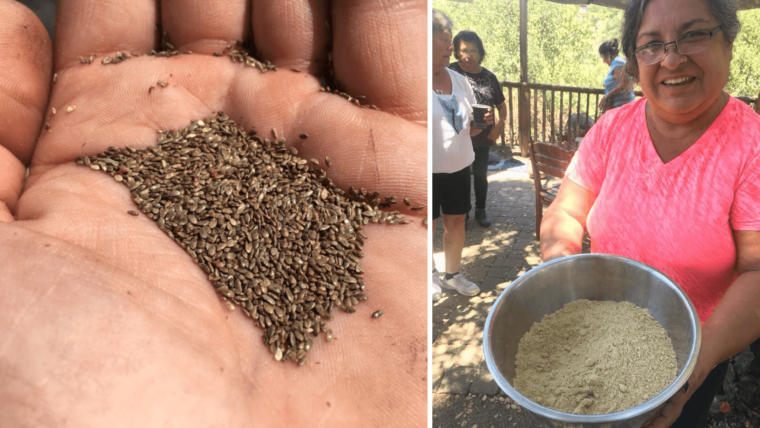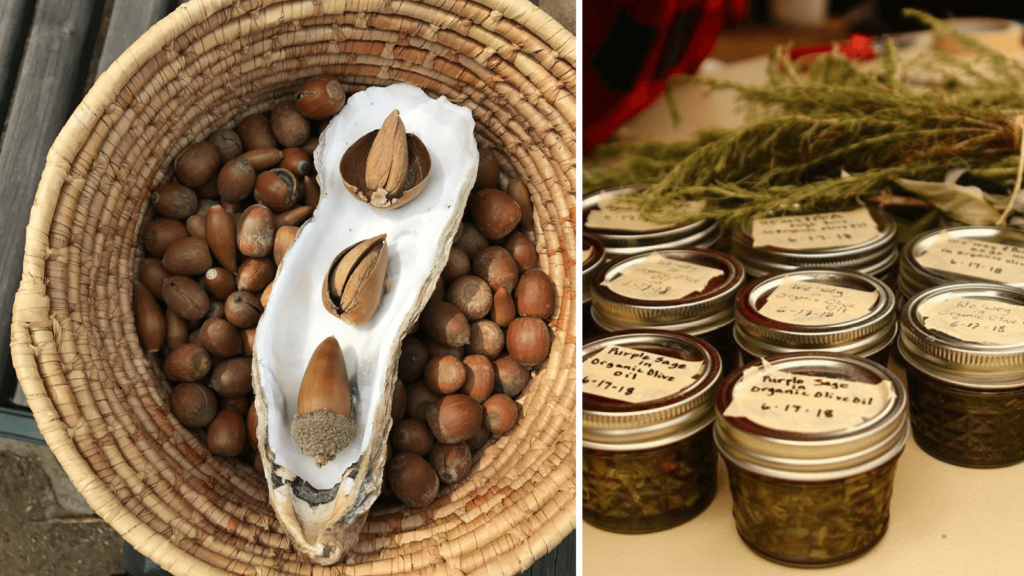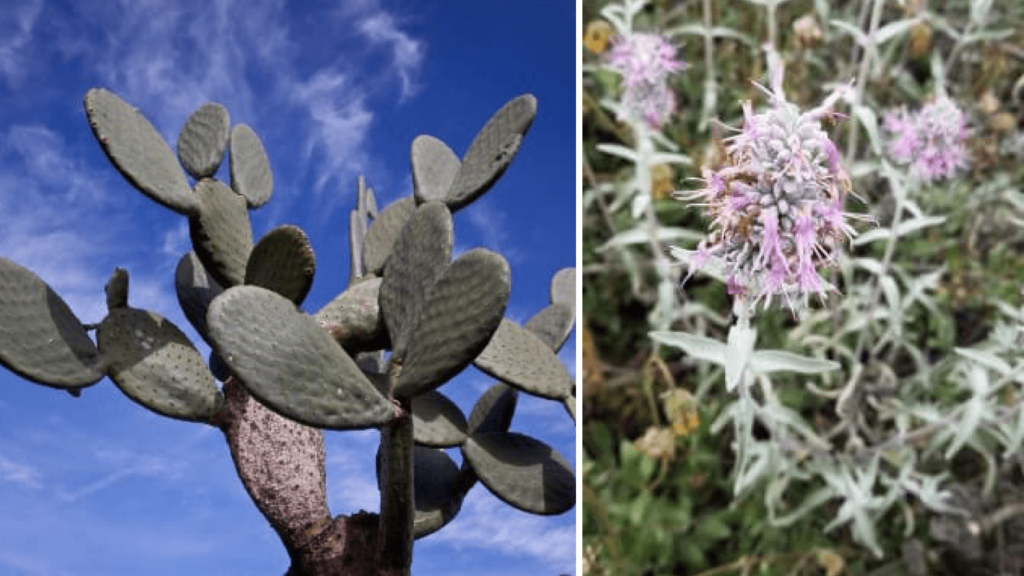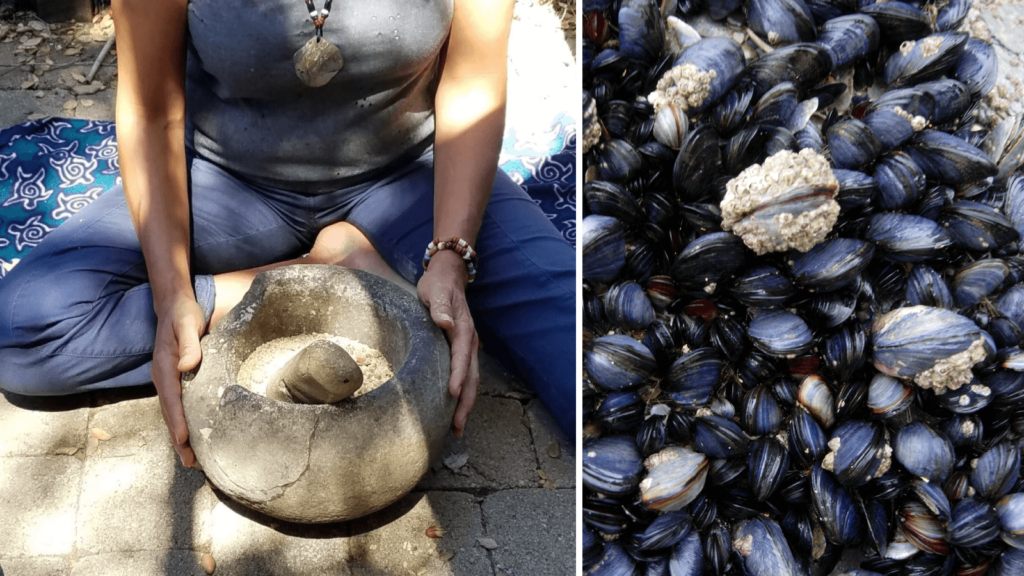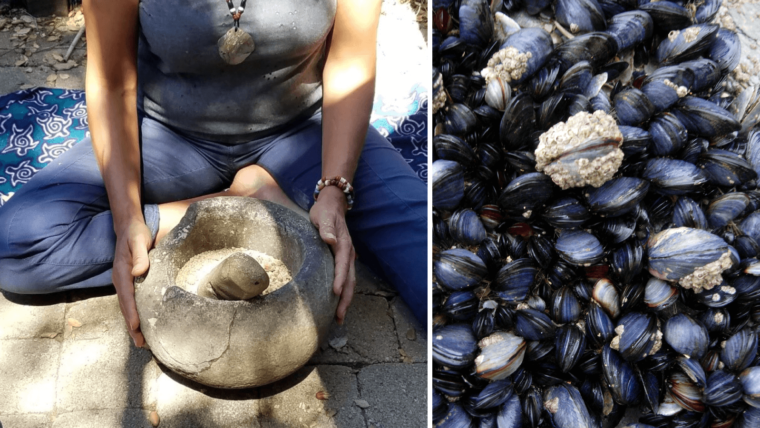One of our grantees, American Indian Health & Services, used BRANCH funds to host three workshops on traditional foods led by Julie Cordero-Lamb, a member of the Coastal Band of the Chumash Nation, a botanist, and an herbalist. In February 2016, Julie recognized the urgent need to preserve and sustain the traditional food practices for future generations and created the Syuxtun Plant Mentorship Collective to informally train a group of apprentices how to identify, tend, gather, and process native plants.
Diane Vela Martinez, Chumash, is a member of the Syuxtun Plant Mentorship Collective (SPMC). Since she was a little girl, she felt a deep connection to the land around her but didn’t know much about the plants and their traditional uses. Diane saw the importance of gathering people together to learn about their traditional plants.
Since participating in the workshops, Diane has felt a deepened connection with the land and her people: “It’s important to share time together with youth and elders by learning our traditional ways. It’s a people thing! We help each other, we learn together, we have those experiences together. That’s what’s important. If we didn’t have that, what would we have?”
The knowledge she’s gained from the workshops has also benefitted her physical health. Diane shared that prior to her experience with the collective, she didn’t have a very healthy diet or active lifestyle. “I used to get winded just going up my stairs.”
The knowledge she’s gained about her ancestral plants has helped her incorporate more traditional foods into her daily life. The plant-tending workshops, which often require hours of hiking in the hills and mountains, have encouraged her to be more physically active in between workshops. “It keeps me motivated to stay physically able because we need to be out there with the plants to tend and gather, so it motivates me to go for walks and do more physical things daily.”
“By participating in this collective group, we can see and feel the results of this work—physical fitness, improved diet, families singing our songs, connecting to our culture, honoring nature and all the things connected.”
Diane has also seen improvements in managing her blood pressure and diabetes. “By participating in this collective group, we can see and feel the results of this work—physical fitness, improved diet, families singing our songs, connecting to our culture, honoring nature and all the things connected. It’s something we needed and didn’t have, and now it’s here! It’s something the ancestors did in their daily life and we need to get back to those traditions. It’s just what the doctor ordered.”

